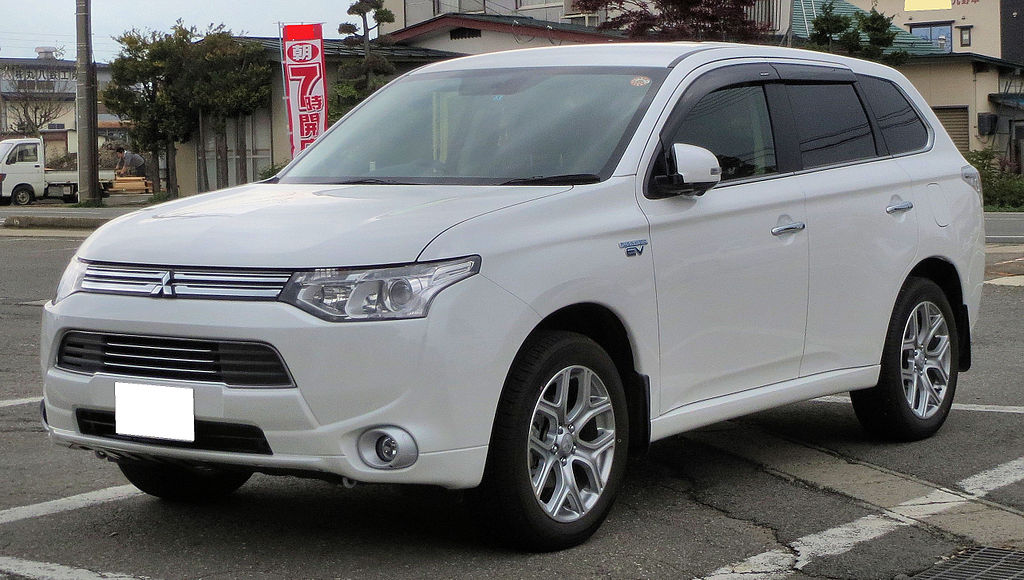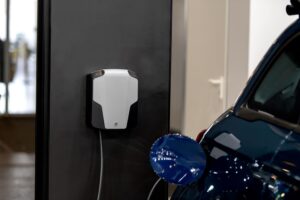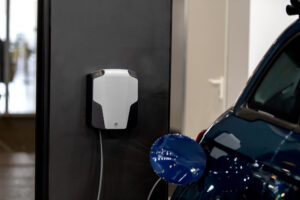As the automotive industry has been swiftly switching to electric cars, constant innovations are being made following this electric era. One of the most groundbreaking innovations is self charging electric cars.
Self charging electric cars are an effective alternative if you want the benefits of electric cars without the hassle of plugging them in to charge them.
Learn how self charging cars are beneficial for your electric trip every day. Let’s get started!
What is a Self Charging Car?

Self charging electric cars, often referred to as self-charging hybrids, is a vehicle that combines a conventional ICE with an electric motor.
It can generate and store its own energy during regular driving activities like braking or coasting, allowing the car to recharge the electric car battery without needing to be plugged into an external power source.
While they can’t run on electric power alone for extended distances like plug-in hybrids or fully electric vehicles, self-charging cars can switch to electric mode for short, low-speed journeys, improving overall fuel efficiency and reducing emissions.
How Do Self Charging Electric Cars Work?

As you drive, self-charging electric cars generate power—typically during braking or coasting—which is then used to recharge the electric battery. This method of recharging the battery is referred to as regenerative braking.
While these cars can’t run solely on electric power for long distances like plug-in hybrids or fully electric vehicles, they can switch to electric mode for short, low-speed journeys. This ability improves overall fuel efficiency and reduces emissions.
What’s the Difference Between a Plug-in and a Self-charging Hybrid?
Self-charging hybrid

A self-charging hybrid, also known as a full hybrid or regular hybrid, has a smaller battery that cannot be charged from an external source. The battery is instead charged through regenerative braking and by the vehicle’s internal combustion engine.
These vehicles use an electric motor to assist the engine and improve fuel efficiency, but they can’t travel on electric power alone for significant distances.
On top of that, they tend to be cheaper and require less maintenance, as they don’t need to be plugged in to charge.
Plug-in hybrid

On the other hand, a plug-in hybrid vehicle (PHEV) has a larger battery capacity and can be charged from an external power source. This means they can drive on electric power alone for a certain distance, typically around 30 miles, without engaging the internal combustion engine.
Once the car’s battery is depleted, the car will switch to operate as a regular hybrid, using both the ICE and the electric motor.
It’s worth noting that while PHEVs offer a greater electric range, they’re generally more expensive due to their larger battery packs.
Are Self-charging Cars Any Good?

Self-charging cars, or self-charging hybrids, have several benefits and drawbacks. Their advantages include lower initial costs compared to plug-in hybrids and electric vehicles, ease of use for those new to EVs, and impressive real-world efficiency across various driving situations. They are particularly effective in stop-start city driving, where the regenerative braking system can recover a significant amount of energy.
However, these vehicles also have some downsides. They are less fuel-efficient and offer shorter electric driving distances than plug-in hybrids and fully electric cars. Critics argue that the term “self-charging” can be misleading, as these vehicles still rely on petrol or diesel fuel for their operation and to charge the battery.
Frequently Asked Questions
Is there a self-charging electric car?
Yes, some of the most popular options for self-charging electric cars are Toyota Prius, Honda Civic, Toyota Corolla, Lexus NX 350h, Ford S-Max, and Kia Sorento Hybrid.
What is the car that recharges itself?
The car that recharges itself is called a self-charging electric car or a self-charging hybrid car. It powers itself using regenerative braking as you drive it.
How long does a self-charging car take to charge?
There is no exact charging duration for a self-charging car as it charges itself as you drive it. If you want to get the electric battery charged, use the regenerative braking of your car often.
Conclusion
In conclusion, the era of self-charging electric cars is redefining our understanding of efficiency and renewable energy use in the automotive industry.
While they may not be a perfect solution for all EV drivers, they offer a compelling alternative to traditional gas-powered and plug-in electric vehicles, particularly for those who prioritize sustainability and convenience.
As we continue to strive for a more sustainable future, self-charging electric cars is undoubtedly part of the journey. Interested in being part of the journey to plan an electric road trip? Visit us at Kilowatt Cars now to find the best second hand electric vehicles for sale in Victoria and second-hand electric vehicles for sale in Melbourne!





